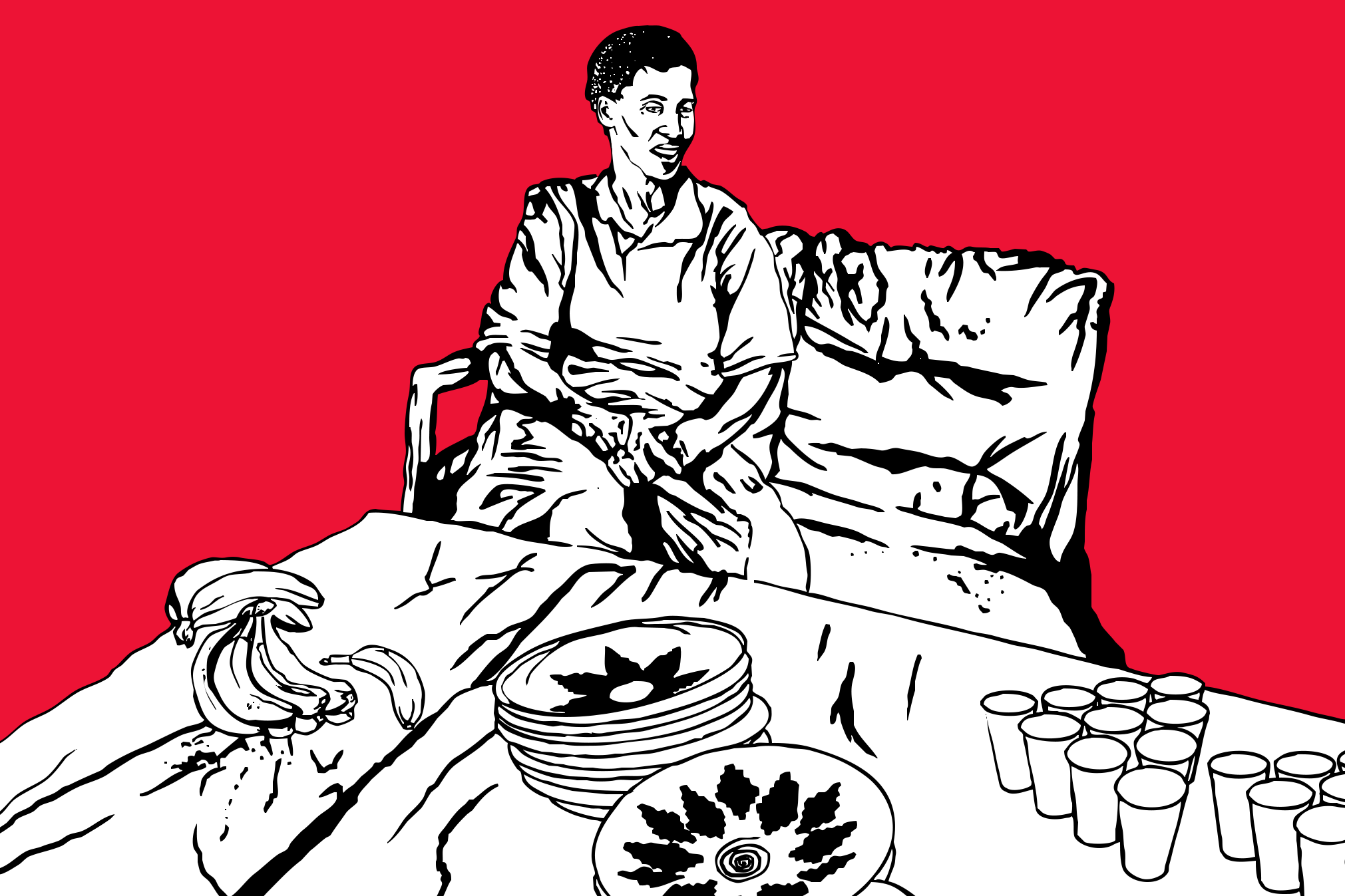Forgotten Women: How a 'dead nation' rose from genocide to become the most representative place for women in the world
In the fourth in our series on the lives of ordinary women behind extraordinary stories, this month’s Forgotten Women features Mukeshimana Vestine, who represents the journey of Rwanda since the genocide that nearly reduced it nothing

“A dead nation.”
The words are spoken in a calm, measured voice, that gives little indication of the tragedy Mukeshimana Vestine has seen.
Widowed, orphaned and an only child, she was left to rebuild her life from nothing while still drenched in grief.

The only one of 14 siblings to survive, with four children of her own as well as nieces to look after, Vestine survived the Rwandan genocide.
Her throat uncharacteristically cracks as she laughs. “Would things have been easier if I was a man? Oh yes, it would’ve been easier.”
The violence was unrelenting, first decimating Tutsi people – like Vestine – and many Pygmy Batwa people, then leading to the displacement of millions of Hutu people.
In 100 days, at least 800,000 people died in the East African nation. It is no secret that number is probably far higher, with the Rwandan government citing the death toll at one million.
“I don’t know what caused this genocide,” Vestine sighs as she recalls the events 24 years later. “All of a sudden I saw people killing each other, people killing their neighbours for no reason at all, people that had never had problems with each other.”
In that first 100 days of grotesque violence, Vestine saw her own family ripped apart.
“We loved each other so much, my family. I had 13 siblings, there were five girls and eight boys. There were always people around and noise.
“When it started everybody ran to different places, but it didn’t matter, they all got caught. All my siblings died in different places at different times that year. Some while they were running, or found where they were hiding. All of them killed.
“My husband had taken refuge in a church in the eastern province, when that church was attacked that’s when he died.”
After the killing ended, many men were arrested or forced to leave Rwanda, leaving a 70 per cent female population.
An inescapable constant of war is women being left behind, with untold responsibilities yet little power to fulfil them.
“We went back to find my house was demolished, it was burnt to ashes and I had nowhere to go; I was alone,” Vestine says. “A woman, a neighbour, gave me a house to live in for a while. I stayed there for a few weeks, trying to work to provide for the children. There was nothing, I kept digging and digging to find food.”
Destroyed homes and not enough food, orphaned children and a country scarred by genocide, Rwandan women would not let this be the end.
Plagued by corruption, inequality and the throbbing hangover of colonialism, the rebuilding of African nations is complex and rarely smooth.
Rwanda is not innocent of these flaws, but it has had a unique path to creating its contemporary society post-genocide.
Women have mobilised themselves.
Whether this is a neighbour offering a place to stay, or organisations helping get women into work, it has been distinctly female-led.
An enormous sense of community, bound at its core by the emancipation of women, Rwanda has in many senses become a country to learn from.
Struggling with illness from her years of poverty yet determined to succeed, Vestine heard about a programme targeting women like her.
“I saw other women graduating from this programme, and women came through my village selecting people for enrolment, so I enrolled.”
This particular organisation, Women for Women International, has helped more than 75,000 Rwandan women move towards self-sufficiency.
Women no longer just dig for food, but they sell it, they teach as well as being taught, and are the foundation on which modern Rwanda is built.
“At the end of the 12 months programme, we split the savings we had as a group between the women, and I used my money to set up a business,” Vestine explains. “At first I made banana juice, but I later realised I could make more money selling bins.
“After a while I started getting terrible back pain and couldn’t lift anymore, so I decided to invest my money, into crop growing and selling. It’s doing so well now I even have a cow and I can sell her milk. I have a very big house, five rooms. When I can, I try to put the money into helping other groups in the community, other women like me.
“I am grateful to the programme because it’s helped me come out of isolation. It makes other women work, and we can build ourselves, which is what we need.”
As she clearly states, Vestine is not alone.
Rwanda is the highest ranked country in the world for gender representation in government.
Even at a local level, women are required to make up at least 30 per cent of district council and political party seats.
A notable finding from this gender-balanced government is a remarkably low level of corruption.
“Women in Rwanda are well because they are now being supported by the government,” Vestine says assuredly, the woman who was once so crippled by poverty she refused to go out in public.
“We now have the same rights as men do. I wish Rwanda will continue to support women, in all spheres of life. That is my hope for my country.”
There is no ignoring the lasting horror of genocide; restorative and reparative justice are essential.
But this horror grew unique conditions for a female-led African nation.
As Vestine says, “Our genocide is not something that can be easily forgotten but we try to live with them and work with fellow citizens for the development of our nation. I can say that Rwanda has tremendously tried to rebuild itself. We remember our loved ones who perished during 1994 genocide against Tutsi as we rebuild ourselves. We have enough security in our nation and we are all working together to rebuild our nation. Specifically, women are rebuilding.”
With male bias dominating so many nations, Rwanda shows that not only can a country thrive and grow with proper gender representation, but that it can help a nation heal from the unimaginable.
Join our commenting forum
Join thought-provoking conversations, follow other Independent readers and see their replies
Comments